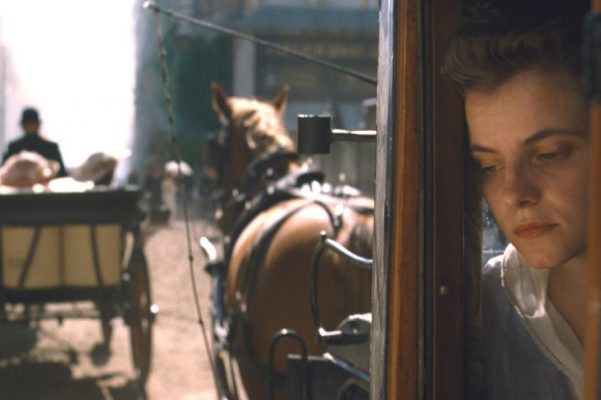@ Filmhouse Edinburgh, from 31 May 2019
When hat-maker Irisz Leiter (Juli Jakab) returns to the department store that her deceased family used to own, she learns of the existence of a brother she never knew about. As Irisz tries to find out more about her brother and his connection with their parents’ deaths, her search results in her becoming entangled in larger conflicts between the Hungarian working class and the mostly-Austrian elite that foreshadow greater battles to come.
Director Nemes, best known in the UK for his gripping and powerful Holocaust drama Son of Saul, continues his stylistic approach from that earlier film, most notably restricting the audience’s perspective to that of the main character, to great effect.
By keeping the camera (and focus) largely on Irisz, Nemes forces the audience to identify with her struggles in a more subtle manner than relying on obvious dialogue that telegraphs her motivations.
In addition, this limiting perspective also restricts the amount of information that the audience receives about Irisz’s family and the wider issues affecting Budapest circa 1913 to what Irisz herself knows, placing the viewer directly in her shoes and ensuring that they share her lack of knowledge and growing awareness as the film progresses.
This directorial choice is helped by the engaging performance of Jakab, who effectively conveys Irisz’s character development from naive newcomer to potential revolutionary through her facial expressions alone. Jakab particularly comes into her own during the film’s second half, where she has to portray Irisz undergoing a number of harrowing experiences, including two attempted sexual assaults, that would test even more experienced actresses.
The screenplay co-written by Nemes initially begins promisingly, with the mystery surrounding the Leiters gradually unfolding, revealing more about how they were viewed in Budapest society and building up to a dramatic assault on a party that is followed by an intriguing narrative subversion. So far, the viewer is left wondering where the story is heading.
However, the second half disappoints somewhat, with Irisz now caught up in a sex scandal involving the new owners of the department store and the Austrian Royal Family that feels overly rushed in comparison to the gradually escalating pace of the film’s first two acts. The final moments are also where Nemes’s decision to keep the viewer as much in the dark as Irisz falters, as the viewer is expected to have a basic understanding of Austro-Hungarian history to fully understand where Irisz’s decisions have led her. As hard as it may be to understand this next criticism, given the film’s already-lengthy 144 minute run-time, Nemes could have done with adding another twenty minutes to fully flesh out Irisz’s experiences leading into 1914.
Ultimately, Sunset initially presents an engaging and at times subversive mystery, but is sadly let down by the need to overstretch the narrative to address wider issues affecting Hungarian society during the 1913-14 time period.
